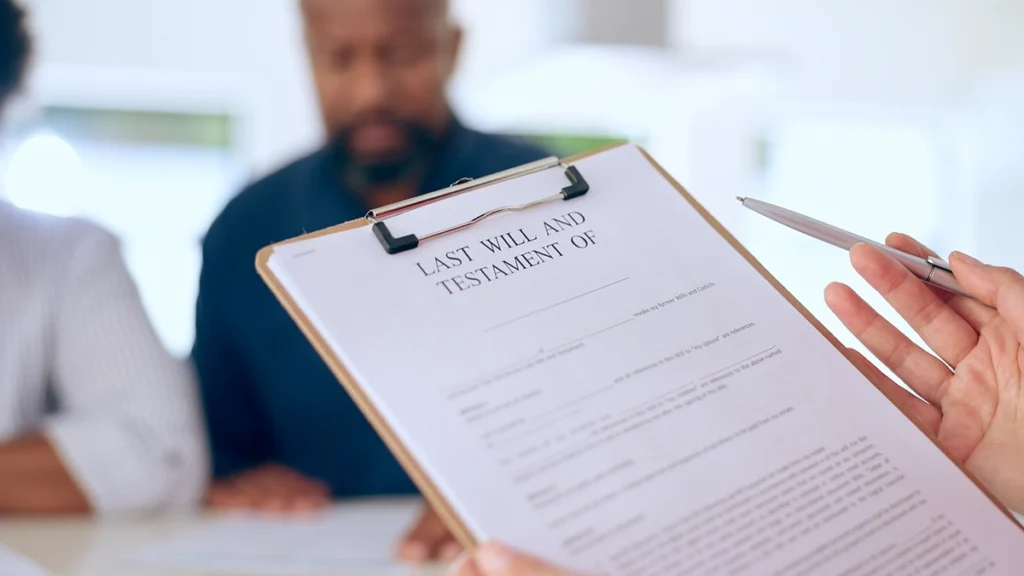There comes a moment when every homeowner thinks about the future of their home and the family memories tied to it. The question is not just how to protect it, but when to act. Many wait until illness or conflict forces the issue, only to find their choices limited and costs much higher.
The truth is, waiting can cost more than money; it can cost peace of mind. That is why now is the best time to create a Lady Bird Deed, also called an Enhanced Life Estate Deed. Acting early keeps control in your hands and secures the future you’ve worked hard to build.
Understanding the Stakes: What Probate Really Means
Probate is the legal process for transferring property after someone dies. While it may sound routine, the process is often far from simple. Probate can take months or even years, depending on the size of the estate and whether family members disagree. The costs add up quickly through court filing fees, executor payments, appraisals, and attorney charges. In many cases, families lose thousands of dollars in legal and administrative expenses. Even more difficult, probate is a public process, which means sensitive details about a family’s property and heirs become part of the public record.
For families already coping with grief, the burden of probate feels overwhelming. Creating a Lady Bird Deed now ensures that the home avoids probate altogether. Instead of waiting for a court order, the property passes directly to the named beneficiary. The process is private, quick, and affordable, requiring only a death certificate and affidavit.
Why Timing Matters
Estate planning is often delayed because it feels uncomfortable to think about. Yet waiting until a crisis limits the options. If a homeowner becomes incapacitated, they may lose the ability to sign legal documents. At that point, family members may be forced to rely on court intervention to make decisions. By acting now, homeowners secure their plan while they are healthy, capable, and able to communicate their wishes clearly. The earlier the decision, the more control the homeowner keeps.
Michael, a 69-year-old homeowner in Florida, decided to record a Lady Bird Deed after seeing his brother’s family struggle in probate for more than a year. He wanted to make sure his children would never face the same stress. By acting while he was healthy, he ensured his wishes were in place without the pressure of a crisis.
Control Today, Security Tomorrow
One reason many families hesitate to plan is fear of losing control. Traditional life estate deeds require the consent of beneficiaries for sales or refinancing, leaving homeowners feeling restricted. The Lady Bird Deed solves this problem. It allows the owner to keep all rights during life: the right to sell the home, take out a loan, rent it, or even revoke the deed entirely. The future transfer only takes effect at death. This means a homeowner can create a deed now without giving up flexibility later.
Clarity for Families
Family disputes often arise when inheritance plans are unclear. A will may name multiple heirs or divide property unevenly, leading to confusion and disagreement. A Lady Bird Deed provides certainty by clearly naming the beneficiary who will inherit the home. It also overrides a will for that property, so there is no doubt about who owns the home after the homeowner’s death. Acting now prevents future disputes, ensures family harmony, and gives everyone peace of mind.
The Cost of Waiting vs. Acting Now
The financial difference between probate and a Lady Bird Deed is striking. Probate costs often reach thousands of dollars, even for modest estates. Attorney fees alone can consume a significant share of what heirs receive. In contrast, preparing and recording a Lady Bird Deed usually costs only a fraction of that amount. It is a one-time document with lifelong benefits. By recording the deed today, families lock in savings that can protect their loved ones later.
Consider this: a probate case for a $250,000 home might cost between $5,000 and $10,000 in legal and administrative fees. By comparison, recording a Lady Bird Deed now costs only a few hundred dollars. The savings can then be preserved for children or grandchildren instead of being lost to the court system.
Peace of Mind in the Present
Estate planning is not only about the future. It is also about reducing stress today. Knowing that a plan is in place brings peace of mind for both the homeowner and the family. Instead of worrying about what might happen, families can focus on enjoying their time together. Acting now removes uncertainty and allows everyone to move forward with confidence.
Where Lady Bird Deeds Are Recognized
Lady Bird Deeds are recognized in Florida, Texas, Michigan, West Virginia, Vermont, and North Carolina. In these states, they have become a popular choice because they combine affordability, simplicity, and legal strength. In other states, homeowners may need to consider alternatives such as revocable living trusts. For those who live where Lady Bird Deeds are available, creating one now is one of the most effective ways to secure the family home.
Why Now Is the Best Time
Every homeowner knows that life is unpredictable. Health can change suddenly, family situations can shift, and property values can rise or fall. By creating a Lady Bird Deed now, homeowners take control of the one factor they can manage: their plan for the family home. Acting early ensures that no matter what the future brings, the home will transfer smoothly, affordably, and with clarity.
For Sharon, a 67-year-old homeowner in North Carolina, this peace of mind was priceless. She wanted her daughter to inherit her home while leaving her savings to other heirs. By creating her Lady Bird Deed now, she secured her wishes and gave her family certainty. As she explained to her daughter, “I don’t want you to ever worry about paperwork. I want you to remember this house for the memories we shared, not the headaches of probate.”
Final Thoughts
The best time to prepare for the future is before urgency forces the decision. Creating a Lady Bird Deed now ensures control, saves money, and protects family harmony. It is a proactive choice that gives immediate reassurance and long-term security. For homeowners in the states where Lady Bird Deeds are recognized, acting today is not only wise but also deeply practical.
Key Takeaways
- Creating a Lady Bird Deed now avoids probate costs and delays later.
- It allows homeowners to keep full control of their property during life.
- It provides clarity by overriding a will for that property.
- It is recognized in Florida, Texas, Michigan, West Virginia, Vermont, and North Carolina.



